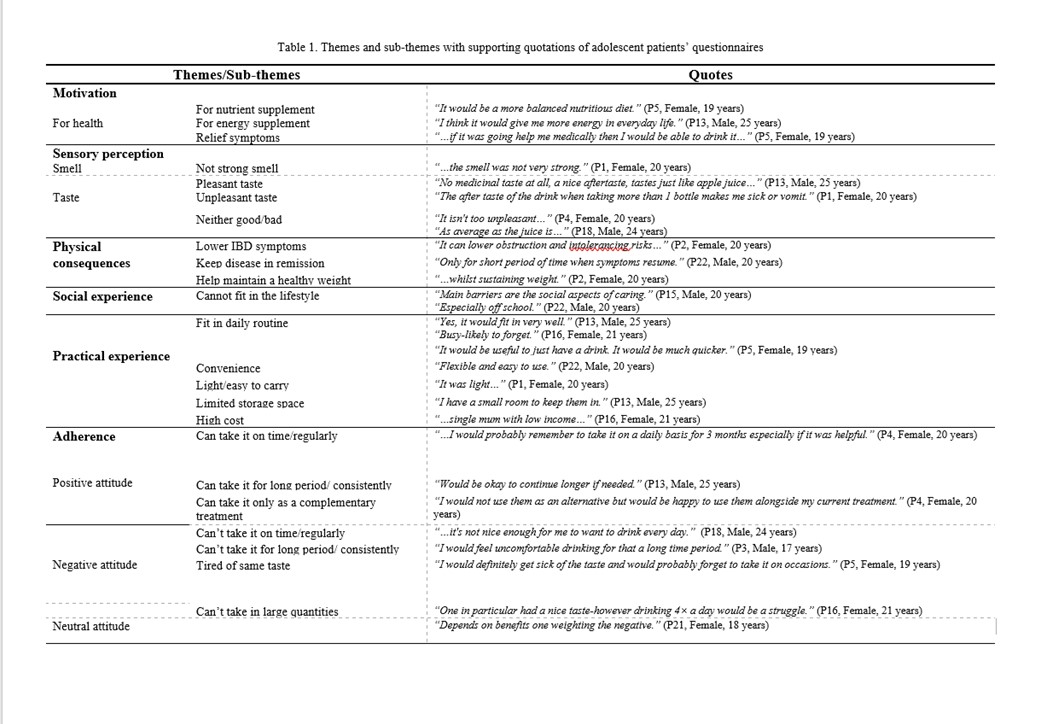P564 A qualitative exploration of acceptability of long-term use of oral nutritional supplement drinks as partial enteral nutrition in adolescent and adult Crohn's Disease
Mu, S.(1);Wei, Y.(1);Weekes, E.(2);Keetarut, K.(2);
(1)University College London, Institute for Liver and Digestive Health- UCL Division of Medicine, London, United Kingdom;(2)University College London Hospital, Nutrition and Dietetics, London, United Kingdom;
Background
Evidence mainly from Japanese cohorts suggests replacing 35-50% of food intake with enteral nutrition known as partial enteral nutrition (PEN) either orally as oral nutritional supplements (ONS) or via nasogastric tube for >1 year can prolong disease remission and increase drug effectiveness in CD. This study aimed to examine patients’ attitude towards the organoleptic properties and perceived barriers and benefits towards long-term ONS usage as PEN by analysing the free text comments from questionnaires. This study will help support our understanding of the feasibility of PEN as a treatment option in CD maintenance by exploring the factors affecting compliance and acceptability and help identify potential areas for improvement.
Methods
Data was obtained from 105 (55 males) aged 34.9 (±15.4) CD patients in remission (HBI<5) from University College London Hospital. Questionnaires with free-text comments were transcribed and analysed using qualitative content analysis using NVivo software. Thematic analysis was used to identify patterns of meaning within and between questionnaires and to identify key themes. Codes were derived through inductive (i.e. data-driven) and deductive approaches, reflecting the thematic guidelines and objectives of the study.
Results
A total of 86 (81%) of participants left at least one free text comment. There was a total of 501 comments. Comments related to participants' perceived attitudes towards taking ONS drinks as PEN were divided into six themes: motivation, sensory perceptions, physiological consequences, social impact, practical experience and perceived compliance. Most patients were willing to stick with ONS drinks as PEN for a short period of time ≤3 months and expected significant therapeutic benefits. Taste fatigue, prolonged use and requirement to drink large volumes may reduce long-term adherence. In addition, storage space, cost and the perceived negative impact on normal social life were also considerations for patients.

Conclusion
Long term use of ONS drinks as PEN in CD patients is influenced by a number of physiological, social and sensory factors suggesting a complex interaction of variables are involved in the perceived attitudes towards their long-term use. Consideration should be given to developing multiple flavours of ONS to prevent taste fatigue, adapting ONS formulations to improve palatability and improving convenience of use. Monitoring by healthcare staff and better education to inform patients on the clinical benefits are suggested as necessary components for future interventions to improve ONS drinks acceptability as PEN.


